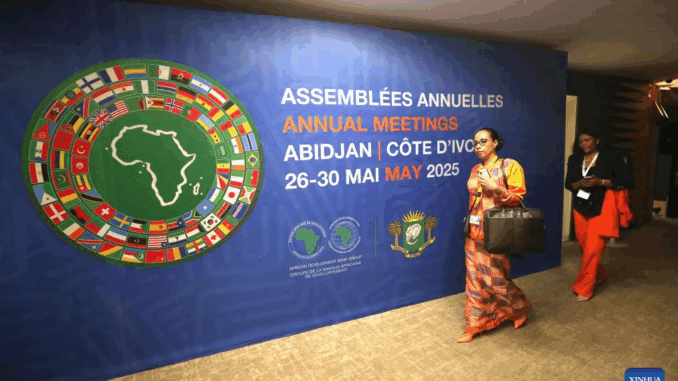
The African Development Bank (AfDB) has sounded the alarm on the rising geopolitical and trade tensions impacting the continent’s economic trajectory, as it trimmed its 2025 growth forecast amid uncertainties triggered by a fresh wave of global tariffs.
In its annual African Economic Outlook report released on Tuesday, May 27, the AfDB revised the continent’s expected economic growth for this year to 3.9%, down slightly from an earlier projection of 4.1%.
The shift reflects mounting concerns over the economic ramifications of a surge in protectionist trade policies, particularly those emanating from the United States and subsequent retaliatory measures from key global partners.
With $318 billion in capital, the AfDB is Africa’s premier development finance institution and a key voice on the region’s macroeconomic stability. It warned that since January 2025, the global economic climate has been further unsettled by a “plethora of new tariffs” that have strained international trade relations. Though the United States comprises only 5% of Africa’s global trade portfolio, its influence on commodity markets and investor sentiment has been disproportionately impactful. The Bank notes that declining commodity prices and reduced valuations of financial assets are already being felt across African economies, threatening fiscal stability in export-reliant nations.
The AfDB’s recalibrated outlook also lowered the 2026 growth projection from 4.4% to 4.0%, citing the same macroeconomic headwinds. Nonetheless, the report highlighted resilience in several fast-growing African nations — including Ethiopia, Rwanda, Niger, and Senegal — which are projected to register growth rates exceeding 7%. The Bank urged policymakers across the continent to adopt prudent fiscal measures, strengthen intra-African trade under the African Continental Free Trade Area (AfCFTA), and insulate economies against external shocks through diversified growth strategies. In the words of the AfDB, “The volatility of the current moment demands adaptive leadership and deeper economic integration across Africa.”
